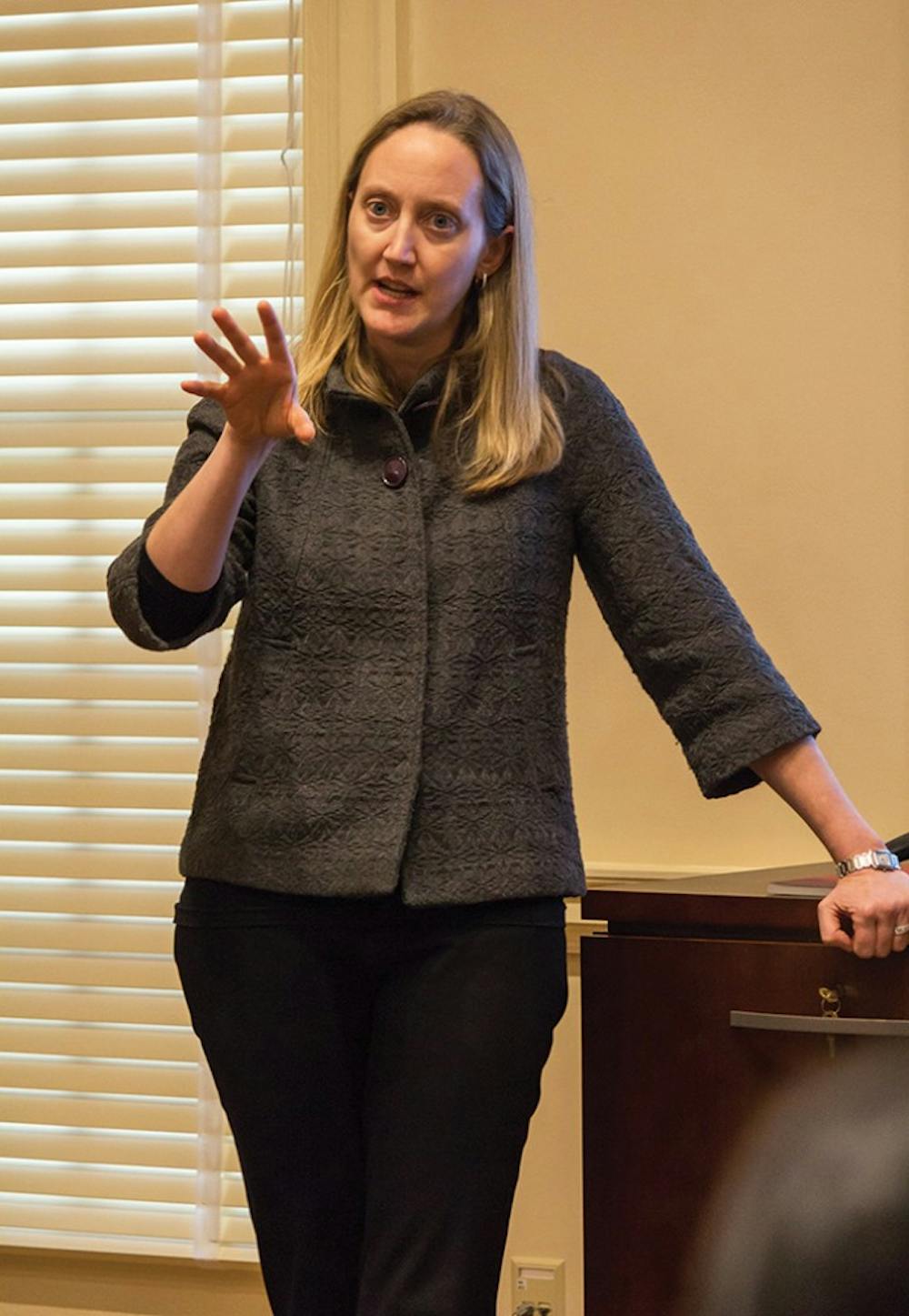Several Law School professors, students and former lawyers hosted an educational information session designed to inform students and faculty of their First Amendment rights and how to deal with verbal encounters that may seem threatening.
Within the first week following the presidential election, the Southern Poverty Law Center registered 437 instances of verbal harassment, intimidation and physical encounters. These instances were related to political affiliation, race, immigration status, sexual orientation, sex and religion.
“People are beginning to think about how to deal with these kinds of situations in a public setting, what is the appropriate response, what rights do you have under state and federal law,” Brian Owensby, Center for Global Inquiry director, said at the event. “So I thought it made some sense to start a conversation about that so people can be more informed.”
The session, which lasted for approximately an hour, covered topics ranging from general constitutional rights to specific rights concerning Virginia’s freedom of speech provisions.
Law Prof. Josh Bowers warned about the fine line between exercising free speech and violating the law.
“We have the ability to express ourselves. Necessarily we need to tolerate the expressions of others even when those expressions are morally troubling and downright abhorrent in some context,” Bowers said. “But there’s a line in which speech cuts over into action, and when speech is action is when it’s potentially problematic.”
Law Prof. Leslie Kendrick, whose research focuses primarily on freedom of expression, said speech is only criminal when a true threat can be proven.
“The First Amendment protects much offensive speech, even a great deal of what many people would call ‘hate speech,’” Kendrick said in an email statement. “Offensive speech is generally protected, unless it falls into certain defined categories, such as true threats and incitement, which may be punished as crimes.”
Bowers said at the event that when typical criminal conduct is done to intentionally inflict harm on someone based on their race, religion or ethnicity, that person may be subjected to a longer sentence.
Law students Anna Rao, Amber Strickland and Tex Pasley explained what constitutes battery, assault and vandalism in the state of Virginia.
Battery is defined as non-consensual touching that is angry, rude, insulting or done in a vengeful manner.
“If you are patted on the back and you say to that person, ‘don’t do that again,’ that’s not a battery because it wasn’t done in a rude or vengeful manner,” Rao said. “But if they do that after you told them to stop that’s clearly something that was done vengefully.”
Assault, on the other hand, is when someone does something with the intention of instilling fear in another person.
Rao said that even wearing a mask in a public space or on someone else’s private property is illegal unless it is related to a cultural event or holiday. The KKK hood is entirely banned in Virginia.
Vandalism is the intent to infringe on people’s right to use a space and damage a property, Rao said.
Pasley added that certain actions do not necessarily fall under the general definitions of either battery, assault or vandalism still constitute violations of Virginia statute.
Certain statutes ban the burning of a cross, hanging of a noose and drawing of a swastika on public or private property.
Kendrick said while it is important for students to know basic First Amendment rights, students shouldn’t be hesitant to report instances that may be in violation of amendment rights, even if it won’t necessarily lead to a conviction.
“Don't assume that if something happens to you there is nothing you can do about it,” Kendrick said. “If you're uncertain about whether you have witnessed or been the victim of a crime, report what happened to the University or the police.”
Correction: This article previously misattributed some of Anna Rao’s quotes to Amber Strickland. The title has also been updated to reflect that the event was not organized by the Law School.







